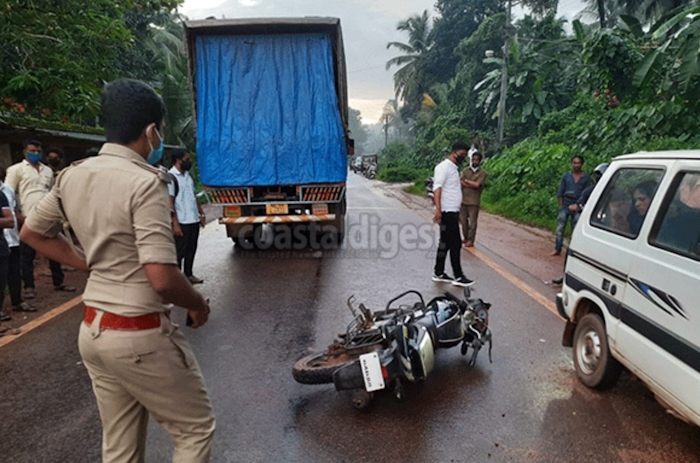Mangaluru, Sept 9: The day-long Bharat Bandh called by an alliance of Opposition parties and trade unions on Monday (September 10) against the rising prices of petroleum products and daily essentials is likely to affect normal life in coastal Karnataka’s Dakshina Kannada and Udupi districts.
With the ruling Congress-JD(S) coalition in Karnataka supporting the cause, the bandh is expected to cause hardship to people. Even though the coastal region considered as a bastion of Bharatiya Janata Party, dozens of organizations have extended support to bandh.
The Dakshina Kannada Bus Owners’ Association has said that it will “morally support” the ‘Bharat Bandh’. Bus services in the district may be affected if there are any obstacles for traffic movement on that day, Dilraj Alva, president, and Prakash Shekha, general secretary of the association, said.
They, in a release, said that hike in diesel prices has hit the owners and it has become difficult to operate buses.
They said that the association urges the Union government to bring petroleum products under the ambit of GST.
Meanwhile, addressing a press conference here, B. Ramanath Rai, former Congress Minister, questioned why the BJP is mum on the increasing prices of fuel. Mr. Rai said that the hike has hit people resulting in increase in the prices of essential commodities. He said that the party appealed to the people to support the bandh.
The Democratic Youth Federation of India (DYFI) has also supported the bandh. In a release its state president Muneer Katipalla said that the economic policies of the Union government are destabilising the life of common people.
Staying away from supporting the bandh, the Old Bunder Kirana and Allied Merchants’ Association, Mangaluru said on Saturday that its members will not close down their establishments on Monday in view of Gouri and Ganesha festivals on September 12 and September 13. In a letter to the Deputy Commissioner, president of the association P. Panduranga Bhandarkar sought security to the business of the members of the association on Monday.
The Udupi District Congress Committee has given a call for a voluntary bandh and claimed that several organizations have extended support.
Janardhan Tonse, DCC president, told presspersons that his party had approached bus operators, autorickshaw operators and other voluntary organisations in the distict. All of them had agreed to support the bandh, he claimed.
Ever since the BJP-led National Democratic Alliance came to power, the prices of fuel and LPG cylinders had been increasing. The wrong economic policies of the Union government were responsible for the rupee losing its value. If the value kept on falling, the day was not far when petrol will be available at Rs. 100 per litre. The Union government had not reduced the price of petrol and diesel when the price of crude oil had dropped in the international markets, Mr. Tonse said.
The Centre earned revenue of Rs. 11 lakh crore due to increase in fuel prices. Despite public anger, the Centre had taken no action on this matter. Hence, the Congress had called for the bandh, Mr. Tonse added.
What may be affected?
BMTC, KSRTC operations, taxis, autorickshaws, Ola, Uber, airport taxi service, schools, colleges, commercial activities, cinema halls and multiplexes, shopping malls.
What will not be affected?
Hospitals, emergency services, milk supply, medical shops, Metro services.







Comments
If govt supporting to this then its state govt holiday
People should cooperate with this. This is for proper reason.
Govt should announce it as holiday. Its for people
Add new comment